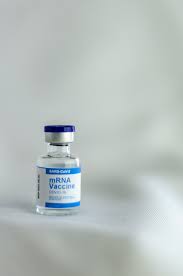Science News Roundup: Fetus brains unharmed by non-severe COVID-19; cancer patients get benefit from mRNA vaccines; Omicron variant may have picked up a piece of common-cold virus and more
This genetic sequence does not appear in any earlier versions of the coronavirus, called SARS-CoV-2, but is ubiquitous in many other viruses including those that cause the common cold, and also in the human genome, researchers said. UK study finds mRNA COVID-19 vaccines provide biggest booster impact COVID-19 vaccines made by Pfizer and Moderna that use mRNA technology provide the biggest boost to antibody levels when given 10-12 weeks after the second dose, a new British study has found.

Following is a summary of current science news briefs.
Fetus brains unharmed by non-severe COVID-19; cancer patients get benefit from mRNA vaccines
The following is a summary of some recent studies on COVID-19. They include research that warrants further study to corroborate the findings and that has yet to be certified by peer review. Fetus brain appears unharmed by mild-to-moderate COVID-19
Omicron variant may have picked up a piece of common-cold virus
The Omicron variant of the virus that causes COVID-19 likely acquired at least one of its mutations by picking up a snippet of genetic material from another virus - possibly one that causes the common cold - present in the same infected cells, according to researchers. This genetic sequence does not appear in any earlier versions of the coronavirus, called SARS-CoV-2, but is ubiquitous in many other viruses including those that cause the common cold, and also in the human genome, researchers said.
UK study finds mRNA COVID-19 vaccines provide biggest booster impact
COVID-19 vaccines made by Pfizer and Moderna that use mRNA technology provide the biggest boost to antibody levels when given 10-12 weeks after the second dose, a new British study has found. The "COV-Boost" study was cited by British officials when they announced that Pfizer and Moderna were preferred for use in the country's booster campaign, but the data has only been made publicly available now.
(This story has not been edited by Devdiscourse staff and is auto-generated from a syndicated feed.)










